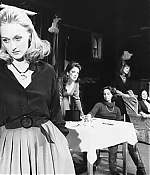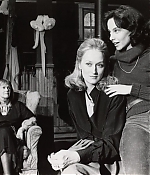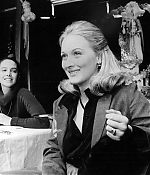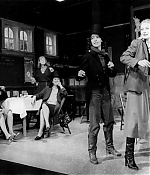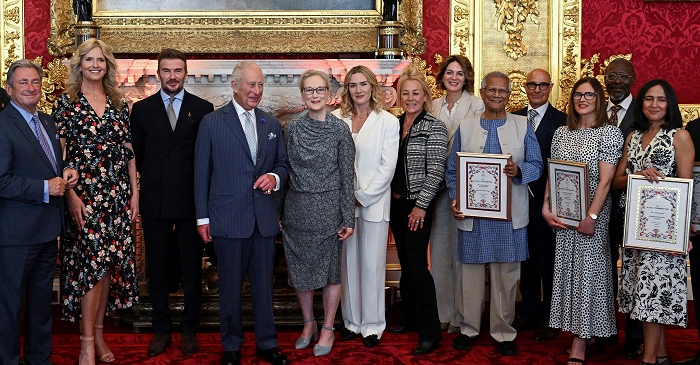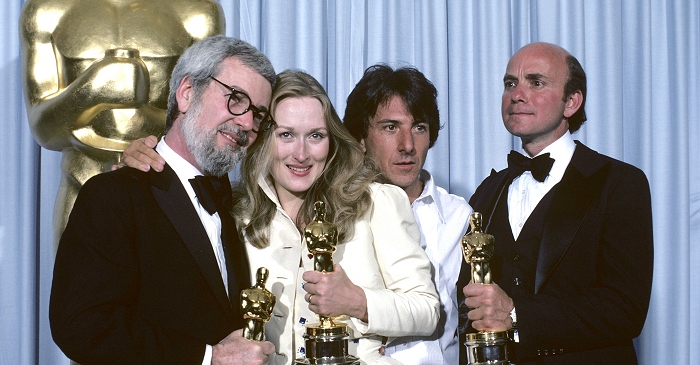|
Simply Streep is your premiere online resource on Meryl Streep's work on film, television and in the theatre - a career that has won her acclaim to be one of the world's greatest living actresses. Created in 1999, Simply Streep has built an extensive collection over the past 25 years to discover Miss Streep's body of work through thousands of photographs, articles and video clips. Enjoy your stay and check back soon.
|
Taken in Marriage
February 22, 1979 - April 01, 1979
· The Public Theater
· Joseph Papp
|

Kathleen Quinlain won a Theatre World Award for her performance as Annie, while Elizabeth Wilson received an Obie Award for her performance. As Meryl’s career was about to explode in 1979 with three successful motion pictures – “The Seduction of Joe Tynan”, “Manhattan” and “Kramer vs. Kramer”, it was this stage performance that introduced her to one of her most beloved and frequent directors of her career:
The first time I ever saw Meryl was in a play called “Taken in Marriage.” It was about the reunion of some women in a small theater, which is where we were. And there were these people onstage, some women acting quite well and speaking a not-very-interesting text. And out came this person who clearly, it seemed, had been allowed to invent her own dialogue. And she said whatever came into her head while the other people were all stuck with the text. That’s the difference. It was as if she was improvising. The accents are great, but as you say, they’re beautiful feet. (Mike Nichols, Newsweek, November 2003)
One is a grande dame of Broadway, the other a young Yale drama graduate. Colleen Dewhurst and Meryl Streep play mother and daughter in Taken in Marriage, Thomas Babe’s barbed comedy about five women preparing for a wedding rehearsal in a small New Hampshire town. Getting ready for this week’s opening, Streep took time out to reflect on her craft. “Good acting is opening the doors to that part of the role you see in yourself, and partnering that with your imagination and invention,” she says.
A superb cast lends Taken in Marriage a trace of conviction. There is an aching honesty to Quinlan’s Annie as she tries to hold a mirror up to her troubled heart. Streep’s alabaster features can convey icy disdain and mock merriment. Her voice is a bed of nails on which she some times lies in self-contempt. As Ruth, Dewhurst was a Rock of Gibraltar. Marchand is better suited to the role, a homebody with artistic impulses who needs a hus band for ballast. Though she has her cranky moments, Wilson’s Aunt Helen is a lamp of sanity, and if anyone could lift the evening out of the dumps, trust Carter’s resilient Dixie. The pity is that these five remarkable actresses have been taken in miscarriage.
The acting is not quite consistent. Elizabeth Wilson and Colleen Dewhurst (the latter since replaced by Nancy Marchand) could not be better as the aunt and mother; Dixie Carter is a bit too determinedly blowsy as Dixie; and Kathleen Quinlain trims her performance down to cinematic scale a trifle too much, although she is marvelous when she is dancing by herself. Meryl Streep, a most accomplished actress, overloads Andrea with tics and fidgets, and sharpens her vocal sneer almost to fingernail-on-blackboard irritancy; yet her performance improves considerably in the second act. Robert Allan Ackerman’s direction is a little too self-conscious in its effort at varying the rhythm, but otherwise assured.


